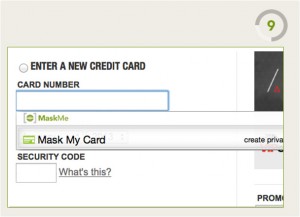Online shopping in China has grown by leaps and bounds since its birth in 1999. Popular Chinese shopping websites such as: Alibaba and Taobao have taken over 59% market share in 2005. For instance, “Taobao offered free listings to sellers while introducing innovative consumer features, such as: an instant messaging tool and escrow based payment tool to the consumers.” Nowadays, with the help of advanced technologies, the “rise of e-commerce activities, as online sales accelerated from RMB 128 Billion in 2008 to RMB 1.1 trillion in 2012.”
Some of the best things about online shopping is reading reviews on products before blind-buying them, comparing prices across different retailers, irresistible sales, fast shipping and so much more. In addition, nothing beats the triumphant feeling one gets after making a great bargain when shopping online. However, falling victim to identity theft and credit card fraud is equally painful. With the exponential growth of online shopping in China, cyber crimes have equally risen. We hear a lot about massive security breeches and it makes us feel more timid when it comes to giving out credit card information over the internet.
“Especially around the holiday season we get these email’s with great deals that almost look too good to be true,” said Rob Shavell, co-founder of Boston based Abine, a software firm specializing in privacy. “But there are some great deals out there and some are totally legitimate. Sometimes it’s hard to tell them apart. You never quite know where your information is going when you buy or sign up for something online.”
Good news is there are in fact methods to protect credit cards on the internet and secure shopping online in China or anywhere else. One of the fairly, newly invented ways to secure shopping online in China is using “masked credit cards”.
Say what?
When you go shopping on any website, in order to make a purchase you are asked for your credit card number in addition to detailed personal information, such as: full name, date of birth, location, phone number and address. The thing is that you become worried where your sensitive information might end up. Aren’t you always afraid that hackers might get into your bank account and steal your cash together with your identity? Big companies, like: Sony, Facebook, Linked In and Zappos for example have leaked their users’ information. However, masking your credit card helps protect your real credit card information by creating a virtual credit card so that vendors and thieves won’t get into your personal data. In addition, masked cards have a fixed value, so you can’t be over charged and your real credit card number can’t be hacked or stolen.
How to Mask Your Credit Card When Shopping Online in China
In this article we will talk about two of the best services that will mask your credit card when you go shopping online in China.
1- Blur
To secure your information when shopping online in China, Blur is a tool that helps you create virtual credit cards that are not linked to your personal information. Every time you get asked for your credit card information, Blur add-on will prompt you to create a masked card.
In order to create a new masked card via Blur to protect yourself whenever you go shopping online in China, “you enter the amount of money you want on the card, and it produces a new card in about 5-10 seconds. You can use any name you want with the card.”
2- Mask Me
Another tool to hide your personal data when you’re shopping online in China is a product developed Boston-based firm, Abine known as “Mask Me“. Similarly to Blur, Mask Me can be added to any web browser to prevent any website you visit from collecting your personal information, such as: email addresses, phone numbers, and credit cards. In this way, those websites won’t be able to track you or trace your online activities.
“Once you’ve done that you don’t have to do anything more because our software will give you the choice to make a masked credit card or not,” Shavell said.
This means that next time you’re shopping online in China you will be interrupted by this message:
All you need to do is to insert the price, then you will receive a virtual credit card with the specified amount. Moreover, all payment information will be automatically filled in. Abine uses its own mailing address as the billing address for all masked cards.
“Masked cards are useful because they leave no trace of your real credit card on all those databases where you shop,” says Abine co-founder and CEO Rob Shavell. “The principal behind what we do for security is very simple: Hackers can’t steal what they don’t have.”
Is it safe?
According to Forbes’s Adam Tanner, “So how do you know if you can trust Abine or other companies promising to protect your privacy, while providing them with data you want to protect? I used their masked card service a few times and it worked fine. I have met several of their top executives and believe they are protecting user data as they advertise.”






